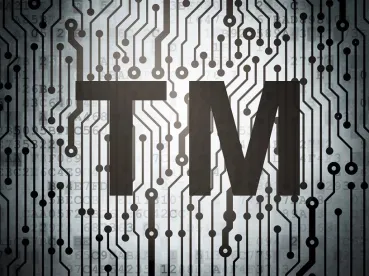Overview
Nike, Inc. has filed a federal complaint against StockX, LLC, an online resale marketplace, in the Southern District of New York, alleging that StockX is minting and selling non-fungible tokens (“NFTs”) that infringe Nike’s intellectual property. StockX counters, arguing that because its NFTs are inextricably linked to and intended to certify ownership of actual physical Nike sneakers, the NFTs are non-fringing fair use and a lawful exercise of the first sale doctrine.
As one of the first documented challenges against NFTs that are used to certify ownership of physical goods, this case raises issues of first impression and may provide greater clarity on the dividing line between infringement and fair use when NFTs are tied to physical products.
About StockX
StockX is an online global marketplace that allows its users to buy and sell “items of current culture,” including coveted sneakers, apparel, collectibles, trading cards, and accessories, among other products. According to the company, StockX’s platform has attracted a significant number of customers who are interested in acquiring and trading these products purely for investment purposes and without any interest in immediately or ever wearing those products or taking physical possession of them. For these customers, StockX offers to store the investment products in a climate-controlled, high-security vault (“Stored Items”). It also uses a proprietary, multi-step authentication process to verify the authenticity of products sold on its platform.
StockX uses NFTs to track ownership of Stored Items that are kept in the StockX vault. According to the company, these “Vault NFTs” “represent[] and track[] proof of ownership of the actual sneaker stored within [the] StockX Vault.” Consumers who purchase the Vault NFTs can either retain digital possession of the Vault NFT and leave the authenticated physical good in StockX’s vault or take possession of the physical good from the vault at any time, in which case the Vault NFT is removed from the customer’s digital portfolio and removed from circulation. StockX asserts that when a user purchases a Vault NFT, they are purchasing the underlying Stored Item and that there is no mark-up for the Vault NFT itself. Furthermore, StockX asserts that the Vault NFTs cannot be traded separately or decoupled from ownership of the underlying Stored Item—it is merely a “claim ticket” or “key” to access the underlying Stored Item.
The Contested NFTs
The Vault NFTs at issue in this case feature images of several Nike brand sneakers, including the Nike Dunk Low Black and White sneakers shown in the image.

Nike asserts that these NFTs are likely to confuse consumers, create a false association between StockX NFTs and Nike, and dilute Nike’s trademarks, among other related detriments. Furthermore, Nike argues that StockX’s product is impeding Nike’s own success in the NFT market, citing, inter alia, their recent acquisition of an NFT company in December 2021 as evidence of its expansion in the market.
Moreover, Nike disputes the argument that the StockX NFTs have no independent value aside from the physical products to which they are linked because of a right of redemption listed on StockX’s website. Specifically, Nike points to the Vault NFT Terms, which state that NFT holders may be granted the right to “obtain certain additional products, or benefits to engage in certain experiences, such as unlocking a reward or access and exclusive sales.” The independent value of these NFTs, if any, will be an important factual determination for the court to make and may have a significant bearing on StockX’s fair use defense.
According to Nike, StockX has already sold 600 of these NFTs, earning thousands of dollars in the process. Nike further alleges that StockX is misleading consumers by claiming that the NFTs are “100% Authentic,” when Nike has not authorized the sale of these NFTs.
In its reply, StockX contends that its use of the images and descriptions of resale products in connection with its Vault NFTs are “no different than major e-commerce retailers and marketplaces who use images and descriptions of products to sell sneakers and other goods, which consumers see (and are not confused by) every single day.” StockX also asserts the affirmative defenses of the first sale doctrine and fair use.
The first sale doctrine is a legal principle that generally limits the rights of an intellectual property owner to assert infringement claims in connection with products already sold to a consumer. StockX posits that its actions are not a violation of trademark law because each NFT corresponds to a specific physical Nike shoe in its rightful possession. Under established case law with respect to the first sale doctrine, StockX could resell these physical shoes without violating Nike’s intellectual property rights if the limited use of Nike’s IP does not lead to consumer confusion. It remains an open question whether the first sale doctrine allows consumers to sell virtual images of the shoe without violating the intellectual property owner’s rights.
The doctrine of fair use is a legal principle that generally allows third parties to use the trademarks of others without liability in limited circumstances. For example, StockX argues that its actions are not a violation of trademark law because the images of the shoes and descriptions of the resale products in connection with the Vault NFTs were permissibly used to refer to specific physical products (Nike’s shoes). Under generally prevailing case law with respect to nominative fair use, StockX could resell these tangible shoes (i.e., authentic Nike shoes) using Nike’s trademarks without violating Nike’s intellectual property rights if, inter alia, the use of Nike’s trademarks was in a manner and to the extent necessary to describe or refer to Nike’s product without a likelihood of consumer confusion.
Whether Nike will be successful in asserting its intellectual property rights or StockX will be successful in maintaining the legality of its actions remains to be seen.
Importance of the Case
Given the unique set of circumstances at hand, this case is expected to shed light on key intellectual property issues surrounding NFTs, particularly when and if NFTs are tied to physical goods. As the first major law firm to purchase land in the metaverse, ArentFox Schiff is closely monitoring developments in this case and other key intellectual property considerations in the metaverse.






 />i
/>i
